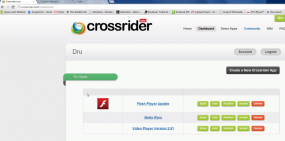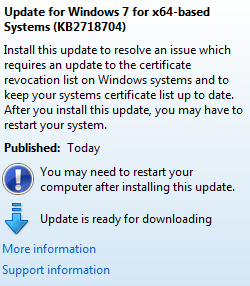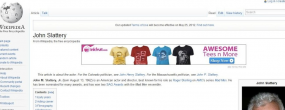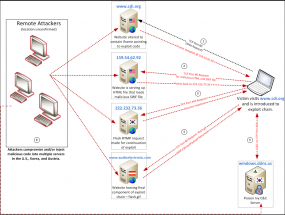Facebook is attempting to nip in the bud a new social networking worm that spreads via an application built to run seamlessly as a plugin across multiple browsers and operating systems. In an odd twist, the author of the program is doing little to hide his identity, and claims that his “users” actually gain a security benefit from installing the software.
 At issue is a program that the author calls “LilyJade,” a browser plugin that uses Crossrider, an emerging programming framework designed to simplify the process of writing plugins that will run on Google Chrome, Internet Explorer, and Mozilla Firefox. The plugin spreads by posting a link to a video on a user’s Facebook wall, and friends who follow the link are told they need to accept the installation of the plugin in order to view the video. Users who install LilyJade will have their accounts modified to periodically post links that help pimp the program.
At issue is a program that the author calls “LilyJade,” a browser plugin that uses Crossrider, an emerging programming framework designed to simplify the process of writing plugins that will run on Google Chrome, Internet Explorer, and Mozilla Firefox. The plugin spreads by posting a link to a video on a user’s Facebook wall, and friends who follow the link are told they need to accept the installation of the plugin in order to view the video. Users who install LilyJade will have their accounts modified to periodically post links that help pimp the program.
The goal of LilyJade is to substitute code that specifies who should get paid when users click on ads that run on top Internet properties, such as Facebook.com, Yahoo.com, Youtube.com, Bing.com, Google.com and MSN.com. In short, the plugin allows customers to swap in their own ads on virtually any site that users visit.
I first read about LilyJade in an analysis published earlier this month by Russian security firm Kaspersky Labs, and quickly recognized the background from the screenshot included in that writeup as belonging to user from hackforums.net. This is a relatively open online hacking community that is often derided by more elite and established underground forums because it has more than its share of adolescent, novice hackers (a.k.a. “script kiddies”) who are eager to break onto the scene, impress peers, and make money.
It turns out that the Hackforums user who is selling this plugin is doing so openly using his real name. Phoenix, Ariz. based hacker Dru Mundorff sells the LilyJade plugin for $1,000 to fellow Hackforums members. Mundorff, 29, says he isn’t worried about the legalities of his offering; he’s even had his attorney sign off on the terms of service that each user is required to agree to before installing it.
“We’re not forcing any users to be bypassed, exploited or anything like that,” Mundorff said in a phone interview. “At that point, if they do agree, it will allow us to make posts on their wall through our system.”
Mundorff claims his software is actually a benefit to Facebook and the Internet community at large because it is designed to also remove infections from some of the more popular bot and Trojan programs currently for sale on Hackforums, including Darkcomet, Cybergate, Blackshades and Andromeda (the latter being a competitor to the password-stealing ZeuS Trojan that hides behind Facebook comments). Mundorff maintains that his plugin will result in a positive experience for the average Facebook user, although he acknowledges that customers who purchase LilyJade can modify at will the link that “users” are forced to spread, and may at any time swap in links to malware or exploit sites. Continue reading →
 According to Microsoft, Flame tries to blend in with legitimate Microsoft applications by cloaking itself with an older cryptography algorithm that Microsoft used to digitally sign programs.
According to Microsoft, Flame tries to blend in with legitimate Microsoft applications by cloaking itself with an older cryptography algorithm that Microsoft used to digitally sign programs.











